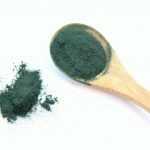Minerals are the building blocks of our planet. They are found in the soil, in the water, in the plants and finally in ourselves. They perform a myriad of functions in our bodies, whether it is the composition of bones, muscles and nerves or the maintenance of the nervous or cardiovascular systems. They help our body to produce energy, grow, hear and utilize many other materials. All in all, they’re pretty necessary. Let us take a look at six ways they have found their way to our everyday life.

Immune system
Let us start with the most important component of our bodies. In most cases, if your immune system goes down, you end up sick. And to keep it up and running, minerals are needed. Selenium is there for you as an antioxidant, reducing the stress on the immune system. We find it in meats and seafood. On the other hand, Zinc is there to help fight the bacterial infections of the throat. You will most likely see it on the cover of all the throat lozenges you might be buying when you feel a bit under the weather and your throat is sore.
They keep you growing
The thyroid hormone is what keeps your body growing and developing and, of course, one of its key components is iodine. It is found in seafoods, bread, dairy products, as well as iodized salt. Unfortunately, the lack of iodine is the leading cause of preventable brain damage. If you are trying to grow your muscles, you will need protein, and magnesium is necessary for protein production and stabilization of its molecules. This is why you will see professional sportpersons, as well as bodybuilders, using magnesium supplement for muscle recovery after a heavy workout.
Your bones are made of this
When it comes to bones, they are probably the home to the largest part of a body’s minerals. Calcium is the mineral that is present in the greatest quantity, and it is of utmost importance for your bones and teeth, as well as muscles and nerves. People usually get enough of it through dairy products, but it is present in fish, greens and legumes as well. Magnesium and manganese are also present. The former helps with the process of breaking down old tissue so that new tissue could be created. The latter is there to assist the function of the bone-formation enzymes.
Energy production
There is a number of minerals assisting with the maintenance and production of energy in a human body. The most important ones are potassium and chromium. Potassium utilizes the carbohydrate metabolism, and it is also necessary for fluid balance and nerve transmission. We take it from meat, fresh fruits and veggies, legumes and milk. The function of chromium is to help insulin maintain the blood sugar levels, thus controlling the food intake and appetite in general. And let us not forget iron, which distributes oxygen in the body in the shape of erythrocytes.
Detox buddies
Methionine and cysteine are amino acids which help detoxify pathways in your liver and take part in the formation of proteins. Of course, sulfur is necessary for their function, and human body gets it from meat, fish, eggs, milk, legumes and nuts. Cobalt is another mineral that helps the body clean itself as it is a part of vitamin B-12, which in turn is necessary for the creation of the previously mentioned methionine. Sometimes, the body uses cobalt in place of zinc.
Don’t be nervous
For the nerve to send information it will require calcium, triggering the neurotransmitters which communicate between the nerves and muscles. And let us not forget that potassium and sodium help maintain the electrical charge of nerve cell membranes, without which there would be no communication. Sodium also participates in fluid balance and muscle contraction and it is found in table salt, soy sauce or processed foods.
Your body needs the essential minerals to do what it needs to do on daily basis. If you’ve ever wondered why doctors recommend a “balanced” diet – this is why. In order for your body to gain all the necessary minerals, alongside vitamins, proteins, and fats, your sources of food need to be at least somewhat diverse.







